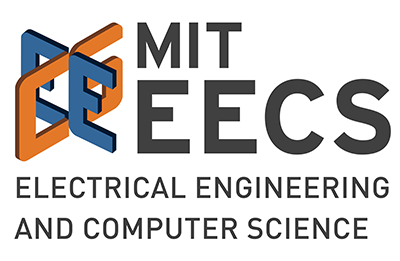Updates emphasize flexibility, earlier engagement with core material, and smoother introduction to software.
New degree requirements have been approved for undergraduates in the Department of Electrical Engineering and Computer Science (EECS). The new curriculum will take effect in Fall 2016 for the Class of 2020 (students entering MIT as freshmen in Fall 2016).
“The new curriculum puts more choice in students’ hands, while providing a solid grounding in the essential elements of an education in electrical engineering and computer science,” EECS Department Head Anantha Chandrakasan, the Vannevar Bush Professor of Electrical Engineering and Computer Science, wrote in a note to the EECS community announcing the update.
The changes introduce greater flexibility into the degree requirements, allowing students to tailor the breadth and depth of their studies to fit their interests. Students will now choose a single introductory (level 0) laboratory subject from an expanded list, reducing the number of introductory requirements from two to one. This will allow earlier engagement with core subject areas.
The new curriculum will serve students with a broad range of backgrounds by providing a smoother introduction to software construction. The introductory software engineering subject, 6.005 (Elements of Software Construction) has been split into two new courses: 6.009 (Fundamentals of Programming), which focuses on building medium-sized programs in Python; and 6.031 (Elements of Software Construction), which addresses large-scale software engineering programs in Java. This update will prepare students for higher level coursework by giving them the skills needed to write software that operates robustly, is easy to understand, and ready for change.
The new degree requirements for courses 6-1, 6-2, and 6-3 have been approved for EECS majors in the class of 2020 (students entering MIT as freshmen in Fall 2016). A corresponding update to the 6-7 requirements is still pending approval. Students in the classes of 2017, 2018, or 2019 may continue using the old requirements, or choose to switch to the new requirements starting in Fall 2016. The graduate requirements for the Masters of Engineering (6-P and 6-7P) are unchanged.
“I would like to extend my sincere thanks to the members of the EECS community who have made these changes possible through their time and dedicated effort over the last several years,” Chandrakasan wrote. “In particular, I would like to thank Professor Leslie Kaelbling, who led the efforts to update the curriculum as chair of the Educational Implementation Committee (EIC) and past chair of the Educational Curriculum Committee (ECC).”
Chandrakasan also acknowledged the contributions of the Undergraduate Student Advisory Group in EECS (USAGE), who advised and helped shape the changes to the curriculum.
ECC members who helped shape the proposal included: Marc Baldo, Constantinos Daskalakis, Srini Devadas, Polina Golland, Katrina LaCurts, Harry Lee, Albert Meyer, David Perreault, Gerald Sussman, Joel Voldman, Jacob White, and Gregory Wornell;
EIC members: Marc Baldo, Dennis Freeman, Ron Rivest, Christopher Terman, and Joel Voldman.
Details of the changes to the curriculum here: http://www.eecs.mit.edu/curriculum2016
Date Posted:
Card Title Color:
Card Description:
Photo:
